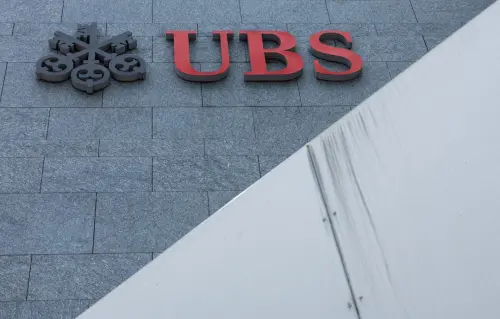Two years after acquiring Credit Suisse to form a Swiss banking giant, UBS seeks to preempt tougher regulations by proposing a limit on the future size of its investment bank and an increase in capital reserves, according to sources familiar with the discussions.
The collapse of Credit Suisse in 2023 marked a significant turning point for Switzerland's financial landscape, leaving the country with only one global lender and prompting regulators to insist on higher capital requirements to enhance industry safety.
UBS executives argue that these increased demands could undermine Switzerland’s financial competitiveness. The head of the main Swiss banking lobby recently warned that excessive regulatory pressures could lead UBS to relocate its headquarters.
"I never expected the greatest obstacle to delivering a successful outcome would come from the same authorities who asked us to take on the Credit Suisse challenge," UBS CEO Sergio Ermotti noted in a staff memo reflecting on the regulatory hurdles.
While UBS primarily earns its profits from managing wealth for affluent clients, excessive capital requirements could dampen its stock value and attract takeover interest, as two sources pointed out. Its wealth management division, in particular, might be appealing to competitors like Morgan Stanley, JPMorgan, Goldman Sachs, and HSBC.
Behind the scenes, UBS is providing regulators with reassurances in a bid to avoid needing to raise what it estimates could exceed $40 billion in additional capital following the Credit Suisse acquisition.
This capital would be necessary if the bank were required to support its involvement in foreign entities with 100% equity, as proposed by financial regulator FINMA, rather than the current 60%. A UBS presentation to lawmakers outlined these concerns.
UBS has proposed capping its investment bank's size at approximately 30% of its total business to address regulatory concerns. This division, which engages in stock and bond trading and offers corporate advisory services, is seen as riskier due to its exposure to market volatility.
As of the end of 2024, excluding non-core and legacy assets, the investment bank represented about 21% of UBS's risk-weighted assets, allowing for some growth potential. In contrast, this division accounted for nearly two-thirds of such assets in 2008, when UBS required a government bailout, an experience that shapes ongoing public discussions about regulation.
UBS is also willing to strengthen its capital position, though not to the extent that some policymakers are requesting. UBS estimates it will need up to $19 billion in additional capital as a result of the Credit Suisse acquisition and new international regulations. Sources indicate the bank might consider adding an extra $5 billion, which is considerably less than what proponents of stringent capital rules, like FINMA, recommend.
A UBS spokesperson affirmed that the bank supports the government's efforts to bolster financial stability, provided these efforts do not impose excessive burdens on the institution. "UBS is already one of the best-capitalized banks globally," the spokesperson stated.
The government plans to provide an estimate in May regarding how much additional capital UBS should hold under the new regulations. However, the final approval process for these regulations could extend until 2028 or later, according to officials.
UBS is exploring all potential scenarios, including relocating its headquarters, though sources indicate the bank has no current intention to leave Switzerland.
Last month's government decision to place the new regulations under parliamentary oversight has allowed UBS to engage lawmakers in discussions aimed at softening the impact of regulations, even amid industry concerns about the possibility of the bank's disappearance.
Franziska Ryser, a lawmaker from the centre-left Green Party and a member of the economic affairs and taxation committee overseeing banking regulation, dismissed the idea that the regulatory changes could prompt UBS to depart. "There won't be demands made leading to these consequences. This will all be discussed calmly, and a suitable solution will be found," she stated. "Extreme rules won't be set."
